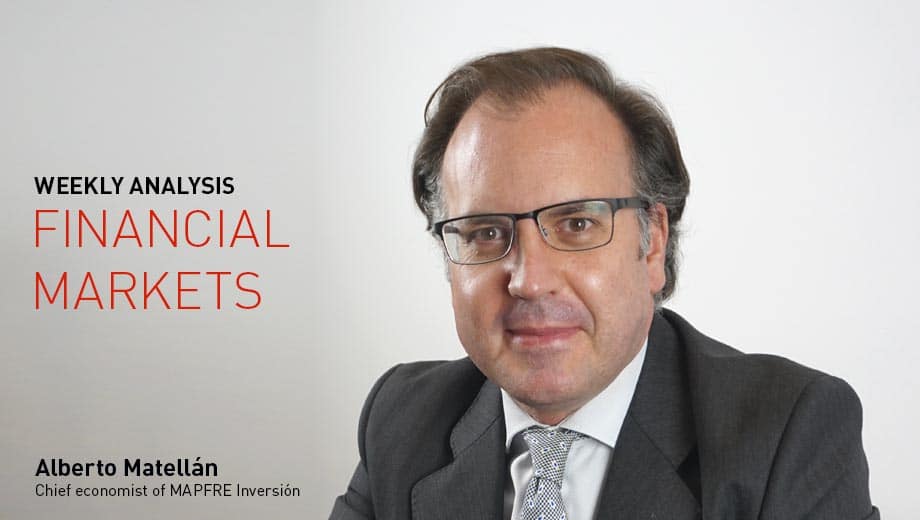Different levels of contagion from the Chinese real estate crisis

Redacción Mapfre
The Evergrande crisis and its possible impact on the markets has become the main focus of investors' attention. At the moment, there is a tense calm because it looks like the company will be able to meet its forthcoming debt payments. However, according to Alberto Matellán, MAPFRE Inversión's chief economist, the group’s possible collapse could set off the dreaded contagion effect, with a greater or lesser degree of severity. In an interview with Radio Intereconomía, Matellán explains that, on the one hand, there could be a direct impact, more contained in nature, affecting only Chinese real estate bonds, “and it would be more limited because it’s been shown that the exposure of foreign investors to these assets is not very high.” On the other hand, it may have a more severe impact if the resulting crisis migrates to the economy, which is already showing signs of moderation. But Matellán recalls that the Chinese authorities are perfectly aware of this cooling down and have already hinted at the possibility of applying stimuli if required. Lastly, the effect could come via portfolios: foreign investors perceiving an increased risk in China and thereby strongly readjusting portfolios of all Asian assets, mainly bonds, but also indices. "This is the most dangerous option but it’s not the central scenario because although mistakes may be made, the Chinese government has no interest in allowing this to unfold," he adds.

This new event, together with worse-than-expected economic data in recent weeks in the United States, has led the Federal Reserve to be more cautious in its messaging. “The Chinese group is the icing on the cake, but growth expectations have moderated considerably in recent weeks. And furthermore, the outlook for inflation remains highly indeterminate. Hence, it will opt for a message that doesn’t tie its hands and that keeps all options on the table until it sees what happens in the coming months,” he explains. And although the Bank of England has a certain reputation for going it alone, and has given us surprises in the past, the situation in the United Kingdom is quite similar and therefore, in the opinion of our economist, the central bank will also enter a wait-and-see phase. In fact, the pound is already anticipating that there will be no movement.
Meanwhile, Europe is experiencing a different situation - a more optimistic scenario with strong upward growth revisions from the OECD, with Spain leading the charge. Matellán suggests that this shows that the impact of COVID-19 has, in the end, been less than expected, that services are taking off with more force and that the recovery of the natural foreign markets, namely Europe and Latin America, is also accelerating quicker than expected . "The trend, in terms of growth, is better in Europe than in the US, which is striking, but it’s even more striking when you consider that this recovery on the Old Continent is happening in spite of the reduction in growth expectations in Germany,” he adds.
Finally, in terms of recommendations for retail investors, Matellán said that the Evergrande case is a pertinent lesson in how to live with volatility, "and we’d more or less forgotten about it, and we need to remember that it’s completely normal." Investors should therefore factor in volatility to their scenarios "and it’s the professionals who must deal with it," he concluded.



